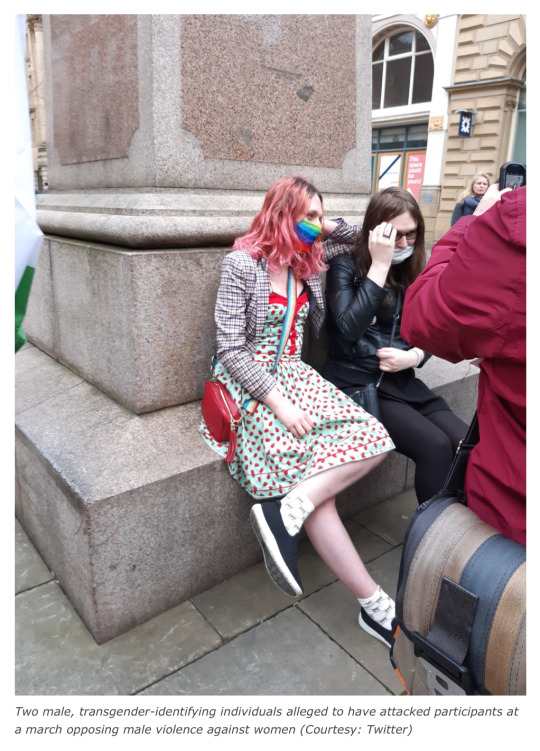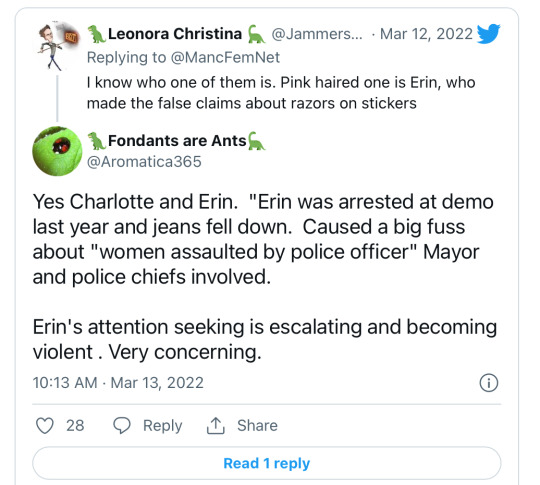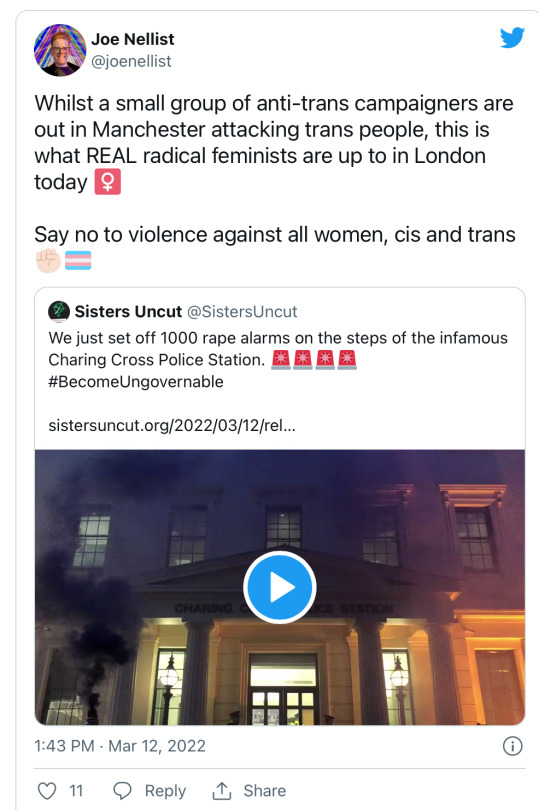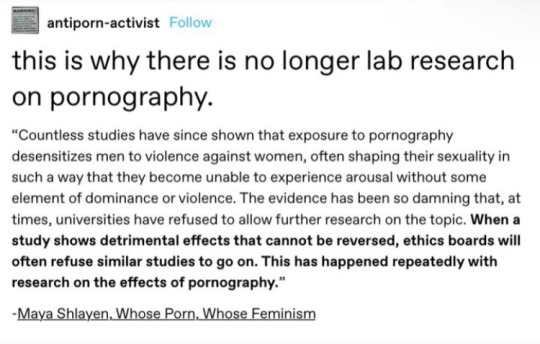#MVAWG
Text

2K notes
·
View notes
Text
We’ve been chatting for about half an hour when Eloise lowers her voice to a whisper. Until now she’s been confidently talking through the ups and downs of being a 19-year-old woman in a world she finds unsteady.
She’s annoyed that, on TikTok, the advertisements she gets are keyrings with rape alarms and “stabby kitties” (a cat-shaped metal keychain with pointed ears sharp enough to cause damage), feels that modern feminism sometimes goes a bit too far, but having grown up in the age of nudes, she doesn’t really trust men. Which is unsurprising considering the story she tells me next.
“So a boy I know was asking a girl at his school for nudes,” she says, quietly. “And then when she refused, he threatened to rape her.” The boy was 14 and had recently posted an Andrew Tate video to his Instagram page, which was Eloise’s first encounter with the online influencer.
“It said stuff like how women are your property and that it doesn’t matter if women say they’ve been sexually assaulted; if you’re with them that’s your right. I didn’t like it,” she adds.
Tate has made several appearances in the headlines this week. On Tuesday, a Romanian court rejected his appeal to ease the ban on him leaving the country as a legal case against him – in which he’s charged with human trafficking, rape and forming a criminal gang to sexually exploit women – continues. He denies all charges against him. The following day, Ipsos polling for King’s College London’s Policy Institute and the Global Institute for Women’s Leadership found that one in five men aged 16-29 who have heard of Andrew Tate have a positive view of him.
Separately – or, arguably, perhaps not – another survey published in the same week underpinned a renewed focus on the attitudes and beliefs of Generation Z, this time from the Crown Prosecution Service (CPS). The research asked just over 3,000 adults of varying ages – 50.6 per cent of whom were female – about their understanding of rape and serious sexual offences, and the law on consent, and drew troubling conclusions.
Overall, 74 per cent of people surveyed understood that it can still be rape if a victim doesn’t resist or fight back, but the number fell to just over half (53 per cent) of 18-24-year-olds who had the same understanding. Less than half of respondents from this age group recognised that victims might not report a sexual offence to police immediately, that being in a relationship or marriage doesn’t mean consent can be assumed, or that if a man has been drinking or taking drugs, he’s still responsible if he rapes someone. More than 70 per cent of over-65s recognised that even if no physical force is involved a person might not be free or able to consent to sex, compared to just 40 per cent of young people.
Previous generations have become used to hearing that rape myths and misconceptions continue to persist, but that’s precisely why this week’s grim trinity of headlines stings. “There tends to be a public assumption that things are generally always getting better,” says author and feminist campaigner Laura Bates. “Actually, views like these are incredibly widespread among young people.”
Bates regularly works with schools, talking to pupils who often tell her that “rape is a compliment”, that “it’s not rape if she likes it” or, “it’s your boyfriend, you have to have sex with him”.
She adds: “Attitude surveys have to be taken seriously because they are a real red flag that we’re going backwards – we’re seeing much more extreme and concerning misogynistic attitudes among the youngest generations than we are among the oldest. We have to face up to that and ask, why is that happening?”
Gen Z has never been neatly contained. Growing up as the first digital natives in the chokehold of crisis – climate, Covid, cost of living – has seen them praised for their social awareness, but disenfranchised and forgotten by politics. Their extremely online nature has given them unprecedented access to the world and other people – but, of course, that’s a double-edged sword.
“The internet has made everyone’s voices louder, but that means the most misogynistic people in the world are heard more too,” says Niya Clement-Hickson, a 26-year-old marketing designer from London. He says his generation has been “kind of ruined” by social media.
“You’d be surprised at just how many people around my age will argue that Andrew Tate is not as bad as he seems.”
When I spend an hour talking to 16-year-old Tate fan Manus from Ohio on TikTok, he says exactly that. He’s relatively timid and seems unsure of what he thinks at times, but came across Tate aged 12, being drawn to his motivational speeches, humour, and attitude towards making money. “[Tate] kinda showed me how people really are in reality,” he says. On Tate’s assertions that women are the property of men, he says those beliefs are simply from the Bible (though Manus himself is Muslim).
He maintains he’s never seen Tate speak violently about women, and when I send him leaked voicenote recordings of Tate saying that he enjoyed raping a woman, Manus is certain it’s fake “probably to make him look bad”. I ask for his views on feminism and he responds that feminists now want “superiority” and “more rights”. What rights exactly? “More rights in general,” he says, vaguely.
This opinion is not a rarity – there’s a pervasive idea circling comments sections and pub corners that the pendulum has “swung too far”. “Some of us warned that when you continue to suppress their identity by telling young boys that they are inherently toxic, they’ll start acting irrational,” one comment under an Andrew Tate post this week read. But it’s not just boys who hold this idea. Early last year, a survey from Ipsos UK and the Global Institute for Women’s Leadership at King’s College London echoed this and some of Eloise’s views that feminism has gone too far. They found that 52 per cent of Gen Z and 53 per cent of millennials believe that we’re now discriminating against men. Less than half of Gen Z respondents said they defined themselves as a feminist.
Was it coincidence then, to see that shortly after the research was published in March 2023, the year of the girl was in full swing? A persistently pink summer was punctuated with girl dinners, #tradwives – modern women who believe in traditional gender roles – and stay-at-home girlfriends sharing their daily rituals on news feeds. New York magazine’s The Cut declared it “Woman in Retrograde” as the year came to a close; a cluster of reactionary elements to a significant demise of mainstream feminism.
This shift back to traditional behaviours is also present in younger men, says Niya. “A lot of guys feel that their role is all about providing money, being a protector. But they feel they deserve to get something out of the interaction. They just can’t deal with being told no.”
In terms of consent, does he hear attitudes that put women in danger? “Absolutely,” he replies. Niya didn’t learn about consent in school – “I don’t think it was ever talked about beyond ‘don’t have sex until you’re old enough’” – and thinks this is quite common for men of his age. For Maya, who’s 24 and neurodivergent, the line of consent is difficult to pinpoint and somewhat shaped by social media. There’s a “disconnect” from what she really wants – and is able to articulate – in the moment.
“I think that we do have less and less sex and more and more porn,” Niya adds. “And I think that once porn is your main and in some cases, only engagement with sex and women, then that is going to completely screw up how you see sex.”
Do all roads lead to porn? Probably. Clare McGlynn, who is a professor of law with particular expertise in sexual violence and online abuse, says: “We know that algorithms promote more extreme content, more hate – and many, many younger people, men and women, are getting this. Millions of people, as we speak, are watching mainstream online pornography that is racist, sexist, misogynist and violent in its content. Of course, it’s shaping attitudes and lives.”
“There’s certainly a pressure on young boys and men, for example, to be taking and sharing nudes – they’re part of a culture that is encouraging them to,” McGlynn explains. During a study, she looked at what material was presented on the homepage of popular sites – she found landing pages which were filled with sexually violent material. “So it’s also not them even actively choosing that material; we’re part of a culture that is grooming young men, teaching them expectations around sex – and asking them to accept and normalise it.”
What appears clear from the survey conducted by the CPS is a dangerous lack of understanding of what constitutes a crime. “I do lectures on criminal law and I’ve had students come up to me afterwards and say that they didn’t know they had been sexually assaulted or raped,” McGlynn adds.
Laura Bates says that we’re in the midst of a “crisis of sexual violence among young people”.
“Deeply misogynistic misinformation is being spread to young people online at a rate that most people just have absolutely no idea about,” she says. “And there is a massive knock-on effect.
“Some will look at these surveys and go, well, what does attitude matter? But you have to draw a connection between these really worrying attitudes about rape and the fact that nearly 80 per cent of young people told Ofsted inspectors recently that sexual assault is normal and common in their friendship groups.”
So what can be done? More responsibility and accountability from social media companies, says Bates. Tate’s content – some of which reportedly shows him attempting to beat a woman with a belt; she later hides behind a locked door – has been viewed more than 11 billion times on TikTok, she says, adding: “That’s more than the population of the planet.” Last year, advocacy group HOPE found that more 16-17-year-old boys had watched Tate’s content than had heard of Rishi Sunak. “I think it’s really important that the government supports high quality, age-appropriate sex and relationships education,” she adds.
Actively listening to and engaging with boys – as seen in initiatives like the state of New York’s Starting the Conversation campaign – is also important. Boys must have a safe and judgement-free environment to express themselves: the more their experiences of rape culture are internalised, the more difficult they are to see.
The Online Safety Bill, which was enacted in October last year, she says, was a missed opportunity for change. While it asks for more transparency on social media platforms and imposes sanctions for those not following the act, along with criminalising cyberflashing and sending unsolicited nude images, “it went 250 pages without mentioning women and girls once, until campaigners changed that”, Bates says.
“It’s so much more effective to focus on prevention of radicalisation than trying to unpick it once it’s happened,” she says. “Young people really are prepared to listen and prepared to change their minds, it’s just a shame this isn’t happening in every school.”
“It does make me worried about how safe the world is going to be,” says Eloise, who will begin her twenties in the summer. “What if people really start thinking that women are property again?” Then, she’s quiet again. “I really hope it can change.”
355 notes
·
View notes
Note
Can you talk more about your successful self-defense stories? I have this bleak idea that female self-defense attempts almost never work out, partly due to the fact that in every. single. video or demonstration on female self-defense, all the moids in the comments are talking about how they could still overpower her if they wanted.
those men are liars!!!! they also all commented on videos like that woman who competed and won against a T-SHIRT CANNON in a throwing contest, claiming any 12 yr old boy could do better. they lie to keep us afraid, but more importantly, they lie because THEY'RE AFRAID OF US! afraid we'll learn to fight back and cripple their ability to victimize us. afraid they'll be the attacker who picks the wrong girl/woman and gets his neck snapped or catches a bullet.
self-defense works, especially since most attackers aren't trained or anything and rely on pure strength. but owning and knowing how to use firearms? or even a taser? the strongest rapist on earth isn't bulletproof yk.
self-defense works, and has the added benefit of making men - particularly predators - experience a tiny fraction of the fear they force women to feel. good. make them afraid. if every or even a high percentage of women & girls were trained and/or armed, men would be forced to think twice before attacking. because men would be injured, maimed, or even killed left and right by women/girls they are trying to victimize. then not only are they hurt (or dead), but even worse (to them), they got beat up by a girl!
caveat: women & girls under patriarchy are very likely to face jail or even prison time for acting in their own defense. I believe this is an intentional attempt to dissuade us from doing so. don't let it stop you - instead, we MUST fight not only our attackers, but their robed enablers, their biased peers on the jury, the congressmen who see themselves in the defendant, and so forth. bring it all down.
122 notes
·
View notes
Text
does anyone else feel like they're being driven absolutely insane by this increasingly popular and palpable narrative that women were PRIVILEGED by the marriage system because we didn't have to work??
Even the leftie people who oppose this narrative do so on the grounds that some marriages were abusive or that trads are lame or whatever don't take into account the seriousness of the claims being made when someone says that women were PRIVILEGED by not being allowed to work.
Because not only is that decidedly untrue and the vast majority of women around the world did unorganised paid labour + child care+ domestic care- the reason that the patriarchal system kept all women financially dependent on men is NOT because it saw women as too delicate to actually work. That is a patriarchal myth that people are taking at face value - something that people across the political spectrum are doing more and more often.
The actual reason women were kept financially servile was so they could be forced into marriages with men- marriages that came with the condition of the woman providing sexual and reproductive services in exchange for financial security. ALL women- no matter how rich and white and privileged, no matter how poor and marginalized- lost all bodily autonomy upon entering marriage and were the property of husbands fullstop.
The 2 main reasons this system is not seen as the master-slave dynamic it really is:
The deeply interpersonal nature of women's oppression leads people to believe that patriarchy is a system that just forced people into unhappy heterosexual arrangements, not a male supremacist one that forced women into subjugation under men.
The fact that the family is a PRODUCT of women's oppression and thus continues that very oppression shows itself in this way: a lot of women did "love" their chief oppressors, their owners (husbands/father's/etc)- bc they were brainwashed into accepting their slavery as their womanly role required to recieve romantic and familial love-by their families (which: formed off of women's oppression, formed to keep women as private property, thus will continue this property-owner relationship).
Everyone is psychologically impacted by their oppressions but women more so because they have always been born into THE system of their subjugation and yet do not see this system as an oppressive force despite the very real violence it has enacted because the people maintaining this system have been called family, not "outside" forces of colonialism or imperialism but people who birth us and raise us.
#feminism#tw feminism#anti tradwife#misogyny#male violence against women#analysis of misogyny#analysis of mvawg
10 notes
·
View notes
Text
men criticize women for divorcing their husbands "at the drop of a hat" or "over anything these days!" but when a woman stays w him for a long time before divorce or has multiple kids w him, then they are like "why would you have kids w him if you knew he was that bad??" or "whyd you stay so long if you knew he was a bad husband??"
like a woman cannot win in the eyes of those men when it comes to divorce! if they leave early, they are accused of not even trying to make it work. but if they leave late, it's somehow also their fault for staying with a bad guy-- as if the men saying it's her fault and she should have left sooner would be any kinder if she actually did.
203 notes
·
View notes
Text
The creation of sexually explicit "deepfake" images is to be made a criminal offence in England and Wales under a new law, the government says.
Under the legislation, anyone making explicit images of an adult without their consent will face a criminal record and unlimited fine.
It will apply regardless of whether the creator of an image intended to share it, the Ministry of Justice (MoJ) said.
And if the image is then shared more widely, they could face jail.
A deepfake is an image or video that has been digitally altered with the help of Artificial Intelligence (AI) to replace the face of one person with the face of another.
Recent years have seen the growing use of the technology to add the faces of celebrities or public figures - most often women - into pornographic films.
Channel 4 News presenter Cathy Newman, who discovered her own image used as part of a deepfake video, told BBC Radio 4's Today programme it was "incredibly invasive".
Ms Newman found she was a victim as part of a Channel 4 investigation into deepfakes.
"It was violating... it was kind of me and not me," she said, explaining the video displayed her face but not her hair.
Ms Newman said finding perpetrators is hard, adding: "This is a worldwide problem, so we can legislate in this jurisdiction, it might have no impact on whoever created my video or the millions of other videos that are out there."
She said the person who created the video is yet to be found.
Under the Online Safety Act, which was passed last year, the sharing of deepfakes was made illegal.
The new law will make it an offence for someone to create a sexually explicit deepfake - even if they have no intention to share it but "purely want to cause alarm, humiliation, or distress to the victim", the MoJ said.
Clare McGlynn, a law professor at Durham University who specialises in legal regulation of pornography and online abuse, told the Today programme the legislation has some limitations.
She said it "will only criminalise where you can prove a person created the image with the intention to cause distress", and this could create loopholes in the law.
It will apply to images of adults, because the law already covers this behaviour where the image is of a child, the MoJ said.
It will be introduced as an amendment to the Criminal Justice Bill, which is currently making its way through Parliament.
Minister for Victims and Safeguarding Laura Farris said the new law would send a "crystal clear message that making this material is immoral, often misogynistic, and a crime".
"The creation of deepfake sexual images is despicable and completely unacceptable irrespective of whether the image is shared," she said.
"It is another example of ways in which certain people seek to degrade and dehumanise others - especially women.
"And it has the capacity to cause catastrophic consequences if the material is shared more widely. This Government will not tolerate it."
Cally Jane Beech, a former Love Island contestant who earlier this year was the victim of deepfake images, said the law was a "huge step in further strengthening of the laws around deepfakes to better protect women".
"What I endured went beyond embarrassment or inconvenience," she said.
"Too many women continue to have their privacy, dignity, and identity compromised by malicious individuals in this way and it has to stop. People who do this need to be held accountable."
Shadow home secretary Yvette Cooper described the creation of the images as a "gross violation" of a person's autonomy and privacy and said it "must not be tolerated".
"Technology is increasingly being manipulated to manufacture misogynistic content and is emboldening perpetrators of Violence Against Women and Girls," she said.
"That's why it is vital for the government to get ahead of these fast-changing threats and not to be outpaced by them.
"It's essential that the police and prosecutors are equipped with the training and tools required to rigorously enforce these laws in order to stop perpetrators from acting with impunity."
275 notes
·
View notes
Text
I'm currently helping my favorite cousin exit an abusive relationship, and a big part of the process has been talking to her about radfeminism and separatism. she was asking me about my thoughts on "sugaring" yesterday, particularly in situations where you are expected to be a pretty face but not to have sex with him.
she seems to be under the delusion that at least some men would look for such a sugar baby just to have a partner to really admire and respect and shower in appreciation, "like a goddess." when I asked why they'd need a sugar baby to do all that, she said something like, "well a lot of people are just independent and want to do everything for themselves, you know?" as if it isn't incredibly easy to find women who would literally die to have a man genuinely respect and admire them.
I told her my honest thoughts (pretty much what I said above), but would love to add some of yours, too! I've found that when I also ask yall your thoughts, I often get some uniquely insightful replies and also some great resources, book recommendations, etc.
edit: please see my reblog providing a bit more info/context! in short: my cousin doesn't really need the money, she's thinking about it more bc she feels that it would make her feel in control/powerful/respected.
and I did tell her this was rather unrealistic, basically delusional - she listens to me and looks up to me & my wife, so we do have a lot of potential to guide her in a safer direction, thankfully
134 notes
·
View notes
Text
radical facts - short feminist facts
#patriarchy
• Forced Marriage & Child Brides
Forced marriage is still a very prevalent violation of human rights worldwide, especially for women and girls. 88% of victims were women and girls.
37% of victims were under 18 at the time of the marriage. Of these, 44% were under 15 at the time of the marriage.
Each year, 12 million girls under 18 are getting married off. Most of these scenarios consist of the girl getting married off to a much older - adult - man.
The UN report (linked below) states that globally, in 2021, nearly 1 in 5 women aged 20-24 were married before turning 18.
(UN - Report "Gender Snapshot 2022"; general report on women's rights & equality worldwide)
#radicalfacts#feminist facts#forced marriage#child bride#human rights#women's rights#patriarchy#androcracy#patriarchal society#female reality#female exploitation#female oppression#vawg#mvawg#un women#report#gender equality#gender snapshot
15 notes
·
View notes
Note
hi sorry if u have answered this before what does MVAWG stand for
No problem! Male Violence Against Women and Girls. You might also see just VAWG, but increasingly organisations and individuals are choosing to specify that the vast majority of violence against female people is committed by males.
16 notes
·
View notes
Note
i know they intended she said to be oscar bait, but it's been completely ignored in favor of women talking, so that actually weirdly makes me feel less harshly towards it lol. i mean, considering how widespread the issue of mvawg and sexual harassment is, you'd think there would be room for two films on the subject, but there isn't. so now she said seems almost quaint instead of little more than a gross attempt at milking weinstein's disgusting legacy for money.
thats true, though i think carey mulligan certainly has a shot to be in contention. but that is exactly what i first thought when i saw it was that it was grotesque to milk this so soon but i’ve softened on that front for sure
4 notes
·
View notes
Text
Another March protesting male violence against women was attacked by men and men in dresses.

UK — Manchester, England. British women’s rights campaigners are reporting that they were violently attacked on Sunday by “men in dresses” while at a march protesting violence against women and girls.
“There was a March in Manchester today about ending violence against women and girls,” a woman named Sophie reported on March 12 in a public Facebook comment. “Men in dresses turned up and started throwing drinks at us.”
A tweeter recalled that the violence at the Manchester march began when a “glass bottle” was “smashed” by the men. Then a “man with pink hair came back for more hurling milkshake,” she wrote.

“Belstaffie was hit, hard, with a carton of milkshake. On two [occasions], I believe,” another woman tweeted. “Thrown/struck with enough force that it has definitely hurt her.”
Another tweeter stated that Belfstaffie was struck in the head and neck.
The women’s rights activist known as Belfstaffie Issy tweeted: “#MaleViolence. I was assaulted twice by a men’s right’s activist, whilst leading the chants for todays Manchester Vigil against MALE violence! I’ve made a statement against this man for targeted assault x 2.”
According to a YouTube video profiling the feminist, earlier in her life, she “escaped an arranged marriage designed to ‘cure’ her lesbianism,” and ultimately “became a Probation Officer […] specialising in serious Sex Offenders.” “
There were children in our group,” Sophie posted on Facebook. “One of these ‘oh so marginalised and vulnerable’ men was arrested.” According to witnesses, the incident was captured on video.
“How emboldened they are in their enthusiasm for MVAWG [male violence against women],” a woman stated in a reply to Belstaffie’s tweet about the incident.
“They put on a dress but the male tendency to violence is always there and betrays them every time,” one man tweeted. “I am so sorry but sadly I am not at all surprised. We had to be protected by police at Melbourne International Womens Day,”
Australian women’s rights activist Angie Jones remarked about the incident in a tweet. “Women around the world are facing escalating male violence as we raise our voices against the Gender Identity Cult.”

Transgender activist Joe Nellist slammed the women as “anti-trans campaigners […] out in Manchester attacking trans people,” adding “Say no to violence against all women, cis and trans.” The Greater Manchester LGBTQ+ Advisory panelist did not respond to several requests for evidence that women had assaulted transgender-identifying individuals at the march.
#UK#maleviolence#Transcult trying to DARVO the incident#Men is dresses acting like regular violent men
48 notes
·
View notes

